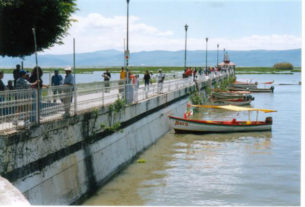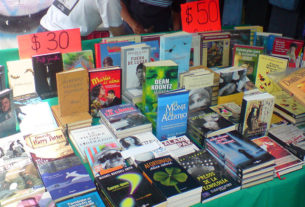Importers will use a customs broker (a private-sector provider of services) of choice to obtain release of the merchandise. The customs agent will provide to importers all necessary information relating to applicable duties and non-tariff regulations. The customs entry will be accompanied by:
- the commercial invoice, when the customs value of the merchandise is determined in accordance with transaction value and exceeds US$300,or the equivalent in another foreign currency (the invoice will be prepared in Spanish — in cases where it is not, a translation may be prepared on the reverse or in the body of the invoice);
- the bill of lading or airway bill of lading, endorsed by the transport company;
- documents evidencing compliance with requirements relating to restrictions and non-tariff regulations that apply to the importation;
- proof of the country of origin, and country of export, as appropriate; and
- the document demonstrating guarantee for the payment of additional amounts that may arise if the declared value is less than the estimated price established by the Secretary of the Treasury and Public Credit for the merchandise which has been undervalued.
Commercial invoices are not required for imports and exports made by foreign embassies and consulates or by their officials and employees, relating to electric energy, crude petroleum, natural gas, and their derivatives when made by pipeline, or for personal effects. The importer will present a declaration in writing and under oath for the customs officials, with those elements that permit determination of the customs value of the merchandise. A copy of this declaration will be given to the customs broker or attorney to use in determining the customs value on the entry.
The customs agent prepares the import entry using information provided by the importer and pays monies owed to the private bank located within customs. The customs broker then presents the merchandise, accompanied by the previously paid customs entry, to the mechanism for random selection for examination.
The customs official activates the mechanism for random selection, which determines whether or not the shipment will be examined. If the shipment is designated for review, the examination will be made within a period not to exceed three hours. This period may be longer when discrepancies are discovered. If the shipment is not designated for review, it will be released immediately so it can proceed to its destination.
Importers will retain documentation that proves the legal importation of the merchandise, in case the fiscal authorities require clarification after customs clearance.
>Source: North American Free Trade Agreement: A Guide to Customs Procedures., Jointly produced by Customs Administrations of the United States, Canada and Mexico, January 1994.
For Additional Assistance
International freight forwarders act as agents for exporters in moving cargo to foreign destinations, including Mexico. These agents are familiar with the import rules and regulations of Mexico, methods of shipping, U.S. government export regulations and the documents connected with foreign trade. Freight forwarders can assist with an order from the start by advising the exporter of the freight costs, port charges, cost of special documentation, and insurance costs as well as their handling fees — all of which help in preparing price quotations.
For a referral to international freight forwarders in your state, you can contact the National Customs Brokers and Freight Forwarders Association of America at (212) 432-0050. For information on contacting a Mexican customs broker (if your Mexican customer hasn’t already indicated a preference), you can contact the Confederacion de Asociaciones de Agentes Aduanales de la Republica Mexicana (Confederation of Mexican Customs Brokers) at 011-525-533-0075, 011-525-533-0076, 011-525-533-0077, 011-525-533-0683 or 011-525-533-0684; Fax: 011-525-525-8070.
NOTE: For specific information on documentation requirements for shipping products to Mexico that qualify for NAFTA preferential tariff treatment under the NAFTA rules of origin, see NAFTA Facts documents 5001, 5002 and 5003 on the NAFTA Certificate of Origin.



